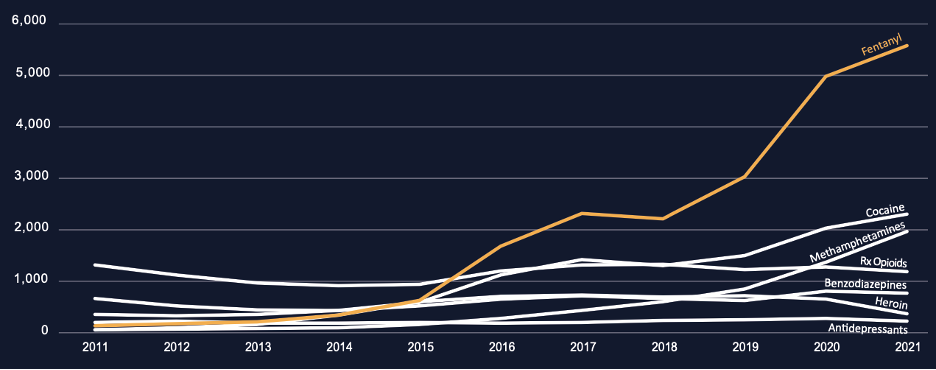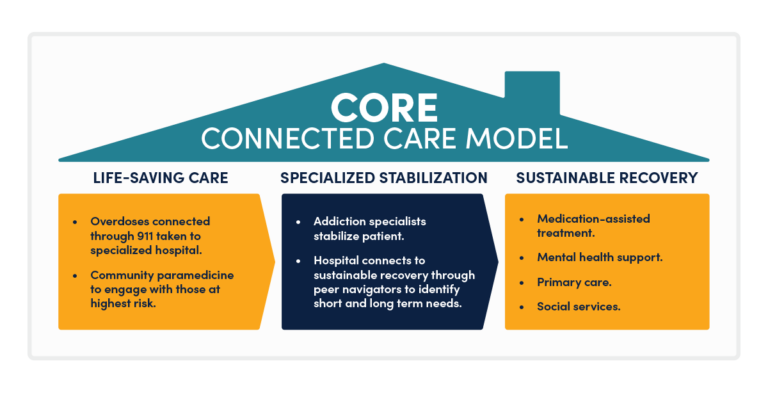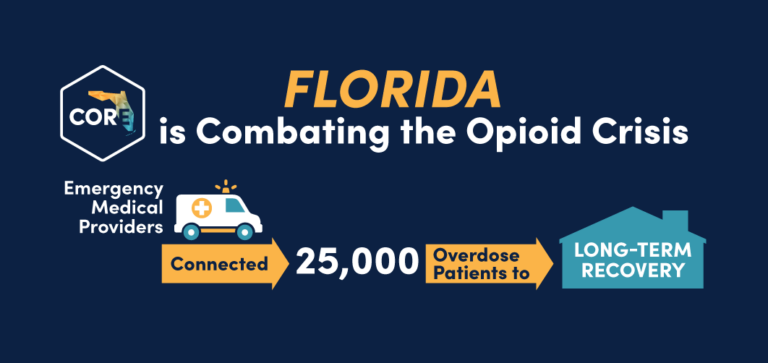Statewide
Now is Not the Time for CDC to Relax Opioid Prescription Guidelines

This month, the Centers for Disease Control and Prevention (CDC) released their 2022 Clinical Practice Guideline for Prescribing Opioids for Pain. The report is an update to previous 2016 Guidelines, but takes a step backwards in the national fight against the opioid crisis.
In response, Dr. Kenneth A. Scheppke, Florida’s Deputy Secretary for Health, wrote the response below. This was published in the Wall Street Journal on November 21, 2022.
The U.S. has grappled with the opioid crisis for nearly two decades.
In 2020 more than 90,000 Americans died from a drug overdose, with 75% of these deaths involving opioids. More Americans 18 to 45 died from overdose in 2020 than automobile accidents and suicide combined.
Opioid use disorder is a chronic life-threatening disease that people contract through exposure to opioids, either illicit or prescribed by a physician. In recognition of this, in 2016 the Centers for Disease Control and Prevention pointed out the risks of overprescribing and the need to limit opioid prescriptions to three days for acute pain. It also recommended that doctors avoid increasing dosage past 90 milligrams of morphine a day.
Yet in early November the CDC updated its Clinical Practice Guideline for Prescribing Opioids for Pain. The updated recommendations toss aside limiting opioid treatment to three days and remove the dosage recommendation. The accompanying 2022 report even says: “Opioids can be essential medications for the management of pain; however, they carry considerable potential risk.”
“Potential” risk? In the 2016 report, opioids were described as having “serious risks, including overdose and opioid use disorder.” There is nothing potential about it. While opioids can be necessary for severe conditions and end-of-life care, the general public shouldn’t be told they are “essential” for pain management.
Many healthcare professionals who have entered practice in recent decades will identify with episodes of the Hulu series “Dopesick,” which tells the story of the dark years before the dangers of opioids were understood. Overprescription of opioids has led to addiction and dependence on illicit drugs. In one study, 80% of heroin users reported that they began this illicit drug use after being prescribed opioids. Therefore, the warning to prescribers should be that prescriptions are often the pathway to illicit drug dependence and have contributed to the fentanyl crisis. I suspect many physicians will wonder why the new report reverses sound advice and minimizes the clear and proven danger of opioids.
In Florida we have made major strides to understand this disease and the need for non-opioid pain-therapy options. Our state has taken aggressive steps toward combating the deadly opioid crisis through evidence-based treatment, while ensuring that those who knowingly contribute to the spread of this disease are held accountable.
Still, there has been an explosion of deadly fentanyl in our state both as a replacement for older illicit opioids and as an additive in many other street drugs. Since 2015 fentanyl-related overdose deaths have increased 790% in Florida.

In response to these alarming statistics, Gov. Ron DeSantis signed legislation earlier this year enhancing penalties for the criminals selling this poison in our communities and developed Florida’s Coordinated Opioid Recovery, or CORE, Network to help the victims suffering from substance use disorder.
CORE Network recognizes substance-use disorder as a chronic, lifelong disease. Overdose is a symptom of that disease. To disrupt the revolving door of overdose and recovery among those with substance-use disorder, CORE Network connects overdose cases to long-term sustainable recovery resources. If someone in a CORE county overdoses, 911 protocol will begin stabilization while transporting the patient to a specialty hospital with expertise in addiction medicine. Once all emergent health threats are stabilized, the patient’s long-term healthcare needs are identified and supported. Patients are then connected to organizations that support sustainable recovery, including access to medication-assisted treatment, primary care, dental care, workforce development and more.
The CORE Network does not require overdose for access to sustainable care services and provides the resources to obtain customized, evidence-based care to support lifelong recovery. Florida is working around the clock to expand this treatment model as the standard of care for recovery.
The nation has taken action to address this man-made catastrophe of opioid addiction, with a substantial amount of the blame being placed squarely on pharmaceutical companies. With approximately $50 billion in global settlements for opioid recovery funds, we are on the right path to obtaining the resources we need to end this deadly epidemic.
The opioid crisis was caused by greed. The healthcare system was led to believe these medications were safe. Pharmaceutical companies fraudulently convinced governments of safety. Patients were overprescribed these substances, leading to devastating consequences. We are beginning to learn from our mistakes, reduce stigma, recognize this disorder as the brain disease it is and take steps toward a brighter future. Now isn’t the time for the CDC to relax its opioid recommendations.
Dr. Kenneth A. Scheppke is a licensed medical doctor who is also a dual board-certified specialist in emergency medicine and the subspecialty of EMS. Dr. Scheppke received his medical degree from Renaissance School of Medicine at Stony Brook University. He completed his internship and residency at the Medical Center of Delaware where he was elected Chief Resident.
Dr. Scheppke has over 25 years of extensive experience in EMS, and his contributions to the field have earned him nationwide recognition and awards. A major key accomplishment is his leadership in the development of the CORE Network, initially piloted in Palm Beach County where he serves as Fire Rescue Medical Director.




